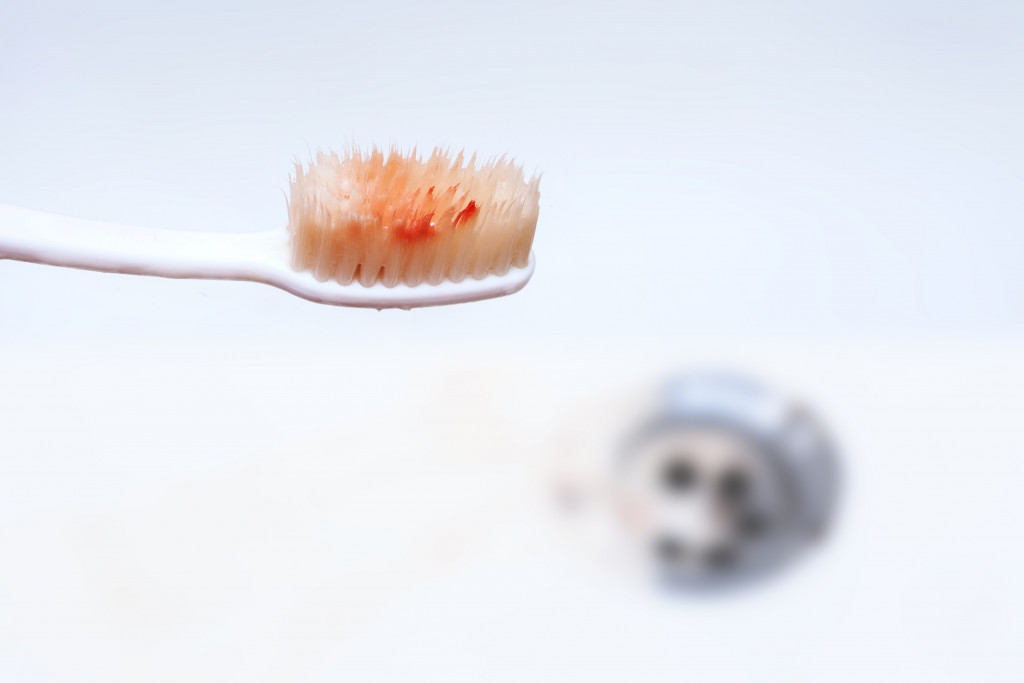• Gingivitis and periodontal disease are common causes of bleeding gums and teeth caused by plaque buildup and bacterial infection.
• Brushing too hard or flossing incorrectly can cause minor bleeding from the gum tissue.
• Poor oral hygiene, smoking/tobacco use, diabetes, medications, and diseases can all increase the risk of developing gum diseases.
• Treatment options include professional cleanings, dental implants, antibiotics, lifestyle changes, and surgery.
Have you ever noticed that your teeth and gums are suddenly bleeding? If so, it’s important to understand why this is happening. It could indicate an underlying dental condition that needs to be addressed. According to the Centers for Disease Control and Prevention (CDC), around 30 percent of all adults in the U.S. have moderate gum disease. In comparison, 8.5 percent of them have severe gum disease. These numbers are indicative of a serious problem that needs to be addressed.
Causes of Bleeding Teeth and Gums
You may have noticed that your gums and teeth are bleeding more than usual. Stop wondering and start asking yourself: What is the cause of this? Here are some of the most common causes:
Gingivitis
Gingivitis is one of the most common causes of bleeding teeth and gums. Gingivitis is caused by plaque buildup on the surface of your teeth. Plaque is a sticky substance that develops naturally in your mouth when bacteria come into contact with food particles and saliva. This plaque can harden over time, eventually causing inflammation at the gum line which can lead to bleeding.
Periodontal Disease
Another possible cause of bleeding gums is periodontal disease. Periodontal disease is a serious infection of the tissues around your teeth, including gum and bone tissue. This condition can be caused by bacteria accumulating in pockets between your teeth, leading to inflammation and eventual destruction of those tissues. The result can be swelling, redness, pain—and, in some cases, bleeding from your gums and teeth.
Brushing Too Hard or Flossing Incorrectly
Sometimes, you might notice minor bleeding after brushing or flossing if you have been brushing too hard or flossing incorrectly. Brushing too aggressively or using a brush with hard bristles can damage delicate gum tissues and cause them to bleed more easily than usual. Similarly, if you don’t use the proper flossing techniques (such as not using enough pressure), you could accidentally scratch the gum tissue, resulting in brief periods of minor bleeding.
Reasons Behind Developing Gum Diseases
Certain lifestyle habits make you more susceptible to developing gum diseases. Your habits may not be directly linked to your gum disease. However, certain lifestyle habits may increase the risk.
Poor Oral Hygiene
You must brush and floss your teeth twice a day and visit your dentist every 6 months for check-ups. This is essential in keeping your oral health in tip-top shape. If this isn’t done, plaque and tartar can build up on your teeth, eventually leading to gum disease.
Smoking/Tobacco Use

Using tobacco products such as cigarettes or cigars can increase the risk of developing gum diseases due to its effects on blood circulation. It also increases the chances of periodontal disease progressing from gingivitis.
Diabetes
People with diabetes are at a higher risk of developing gum diseases. This is because high sugar levels in the mouth can lead to an increased buildup of plaque and tartar around teeth, increasing the chances of developing gum disease.
Medications and Diseases
Certain medications, such as those used for depression, blood pressure, and cancer, can also cause dry mouth. Without enough saliva to wash away bacteria in your mouth, it is easier for plaque and tartar to build up, which increases the risk of developing gum disease.
Treatment Options

Understanding the underlying causes of bleeding gums and teeth is important so you can treat them before they lead to more serious problems. If you’re experiencing persistent bleeding, it’s best to talk to your dentist to determine the cause and get the proper treatment. Here are your options:
- Professional Cleaning: A professional cleaning can remove the hard plaque and tartar buildup that could be causing your gums to bleed.
- Dental Implants: In case periodontal disease causes tooth loss, dental implant options such as bridges, dentures, and implants may be necessary. These options can help restore your oral health and address the underlying cause of the bleeding.
- Antibiotics: If a bacterial infection is to blame for gum bleeding, your dentist may prescribe antibiotics to help fight it off.
- Lifestyle changes: If lifestyle factors such as smoking or poor oral hygiene are causing you to develop gum diseases, it is best to make changes such as quitting smoking and increasing your oral hygiene habits.
- Surgery: In severe cases, your dentist may recommend gum surgery to remove the plaque and tartar buildup causing your gums to bleed.
No matter the cause of your bleeding gums and teeth, it’s important to get it addressed to maintain good oral health. Remember: Prevention is key to avoiding serious dental issues down the line. So, brush and floss regularly and visit your dentist for regular check-ups!

